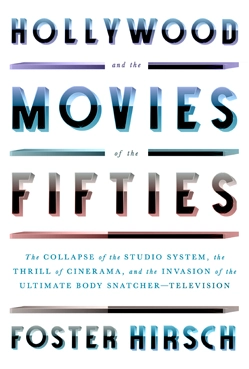
A bizarre film noir starring Ginger Rogers and Doris Day
In the Warner Bros. crime-movie category, the decade’s hands-down winner is Storm Warning (1951), a forceful and unexpected exposé delivered in the hard- hitting house style that had reached its apex during the Depression in such films as I Am a Fugitive from a Chain Gang (1932). Storm Warning was the inspiration of liberal producer Jerry Wald, appalled by the blacklist and the institution of loyalty oaths in the aftermath of the October 1947 House Committee on Un-American Activities investigations of alleged communist influence in Hollywood. Wald hired Daniel Fuchs, a prominent left-wing writer, to provide a story that would indirectly—allegorically—reflect the contemporary atmosphere of intimidation and fear.
After Fuchs turned in a promising first draft, Wald hired Richard Brooks as cowriter; Brooks had written The Brick Foxhole, the basis of Crossfire, a 1947 social-message drama Wald admired. (The topic in the novel is homophobia, changed in the film to the less toxic subject, at the time, of anti-Semitism.) Working together, Fuchs and Brooks devised a story, rich in implied meanings, about the stranglehold of the Ku Klux Klan on a southern town in which citizens are afraid to speak up.
A savvy showman (rumored to be the real-life model for Sammy Glick, Budd Schulberg’s ultimate Hollywood hustler in What Makes Sammy Run?), Jerry Wald was concerned that a grim saga of a right-wing takeover would frighten away audiences, so he ordered his screenwriters to “marry” their story about the Klan to elements drawn from Tennessee Williams’s A Streetcar Named Desire, which Wald had seen on its volcanic opening night on Broadway in December 1947. As a result, Wald’s potent, incendiary, and seriously strange social-message drama is streaked with characters who resemble visiting out-of- towner Blanche, her sister, Stella, and Stella’s beefcake husband, Stanley Kowalski, from Williams’s landmark play.
Although Wald had a script ready to go by early 1949, he had trouble finding actors among the contract players at Warner Bros. willing to appear in his offbeat amalgamation. Doris Day, who had been lobbying Jack Warner for straight dramatic roles as a relief from the fluffy musicals in which she felt typecast, did not want to play the Stella part, a wife besotted by a sexy, bad-boy husband, a stupid and dangerous man who becomes part of the Klan. Warner, however, forced her to do the film.
Nobody at the studio wanted to play the Blanche role, the visiting sister who witnesses a murder committed by the Klan. Bette Davis, nearing the end of her contact, adamantly refused, and since Warner by this point did not have the leverage with Davis that he had with Day, he backed off. With equal fervor, Jane Wyman also rejected the assignment. Joan Crawford was interested, but felt that audiences would not accept her as the sister of the already-cast Doris Day. She may well have been correct. Warner and Wald then coerced Lauren Bacall into accepting the role, but she balked at the last minute. At that point, Wald felt he had no choice but to cast from outside the studio’s contract players, and he snagged Ginger Rogers, who is indeed convincing as Day’s older sister and moreover projects the toughness and resolve the role demands. Once Rogers was cast, Day, who had idolized Rogers in her RKO musicals with Fred Astaire, began to feel more comfortable.
Offered a role that seems tailor-made for him, a crusading district attorney who is the only citizen in town willing to stand up to the Klan (the actor was already known in the industry as a staunch anticommunist—as, that is, a zealous pursuer of political extremists), Ronald Reagan, nearing the end of his Warner Bros. contract, declined at first, but Warner persuaded him to reconsider.
For the dim, sexpot husband, a kind of road-company Stanley Kowalski, Wald was turned down flat by Marlon Brando and José Ferrer; his third choice, Steve Cochran, under contract to Warner Bros., accepted eagerly, and in a juicy role gives the performance of his career. Wald told the wardrobe supervisor, Milo Anderson, to dress Cochran like Kowalski, hence the actor’s appearance throughout (when he is not dressed in his Klan robe and hood) in tight-fitting T-shirts.

Excerpt from Hollywood and the Movies of the Fifties
Joan Crawford in the 50s
In Sudden Fear, Crawford at forty-six plays a woman whose husband wants to kill her; the indignity is compounded in Torch Song in which her character ignites passion in a blind pianist (Michael Wilding). Designed as a showcase for an aging star to prove herself, Torch Song instead exposes Crawford’s icy calculation. READ MORE
